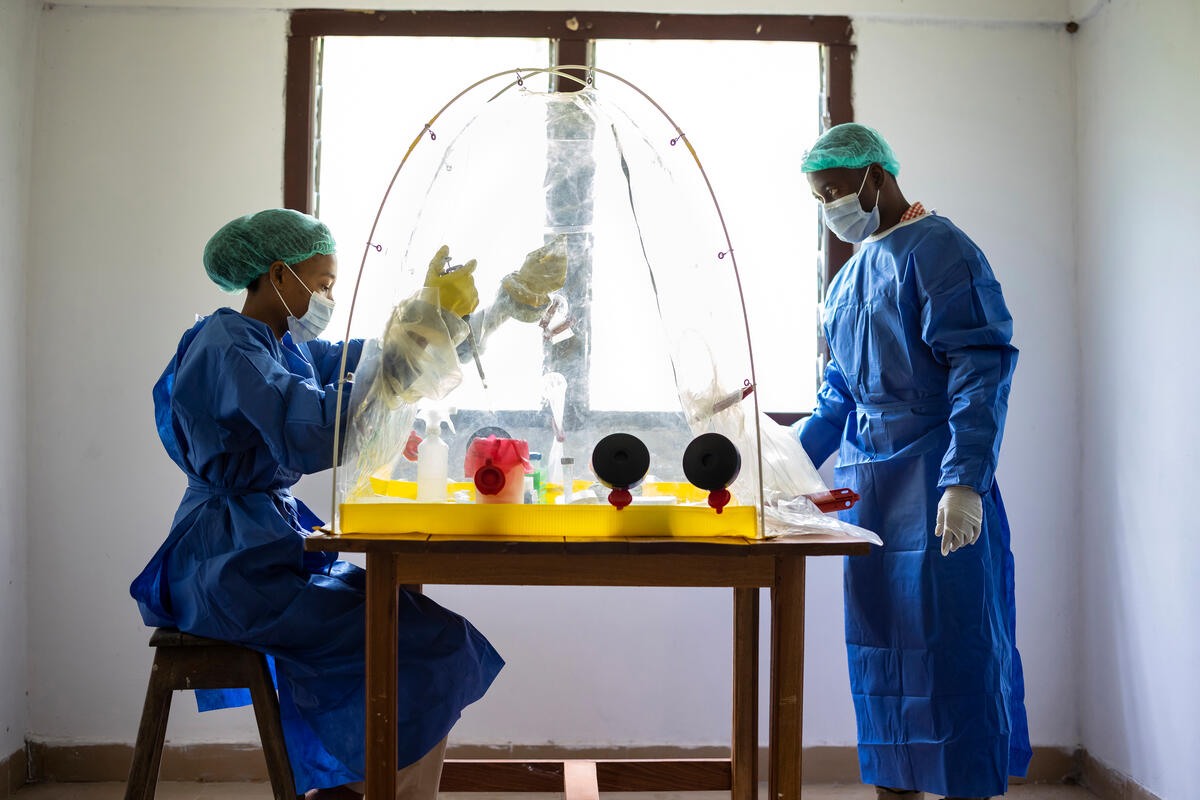
Ethio-pandemic multi-sectoral prevention, preparedness and response in Ethiopia

The Ethio-Pandemic Multi-Sectoral Prevention, Preparedness, and Response Project (EPPR) is a partnership between the Government of Ethiopia’s Ministries of Health, Agriculture, and Finance and three Implementing Entities (IEs) (FAO, UNICEF, and WHO). It is supported by a $50 million grant from the Pandemic Fund and an additional $63 million in co-financing. The Project will invest in Ethiopia’s pandemic PPR efforts. EPPR brings together other key stakeholders, including civil society organizations, the International Organization for Migration, Resolve to Save Lives, the Clinton Health Access Initiative, Ohio State University, Addis Ababa University, and Hawassa University.
The EPPR is a comprehensive plan that addresses key areas of pandemic PPR that are specific to Ethiopia’s complex landscape.
Project objectives
The EPPR Project aims to strengthen surveillance systems, enhance the national laboratory system, and ensure the availability of skilled and competent One Health professionals for a sustainable and functional public health system to enable prevention, detection, and response to pandemics.
Implementation arrangements and key components
A Joint Coordination Committee (JCC), made up of representatives from government entities and partner organizations, will be established at the start of the Project and will regularly review progress, discuss challenges, and provide guidance to the overall strategic direction of the project. A joint Monitoring and Evaluation framework will be developed and validated by the JCC to track project progress, assess the effectiveness of interventions, and identify areas of improvement. This will involve data sharing and conducting joint field visits, workshops, and evaluations.
The key components and project activities are aligned with the national plans including Ethiopia's Health Sector Transformation Plan, Ethiopia Public Health Institute's Strategic Plan, the Ethiopian National Health Emergency Preparedness and Response Plan, and the Ethiopian Antimicrobial Resistance (AMR) National Action Plan. The Project also addresses findings from the Joint External Evaluation (JEE) and State Party Self-Assessment Annual Reporting (SPAR) assessments.
Expected outcomes
With the $50 million Pandemic Fund grant and $63 million in co-financing, EPPR is expected to make valuable contributions to Ethiopia’s efforts in pandemic PPR. For Ethiopia’s workforce, it will strengthen existing training, management, and response teams across human and animal sectors at all levels (Target: 6,870 professionals). Ethiopia’s laboratory systems will increase services and accessibility including improved detection of priority pathogens (Target: 2500 facilities mapped, 120 professionals trained, 15 AMR sentinel sites, 5 AMR surveillance sites, and 5 molecular labs established). Lastly, Ethiopia will enhance surveillance of outbreaks at points of entries and improve the alert system mechanism for the country (Target: 45 hospitals with infection surveillance, 30 functional Public Health Emergency Operations Centers, 12 risk assessments conducted, surveillance systems in 10 humanitarian settings and 5 additional points of entries).
Find out more

Projects
Pandemic Fund
FAO will co-lead the implementation of 12 projects aimed to boost local and global health security as part of the Pandemic Fund’s first round of financing.

Highlights
Pandemic Fund Call
Pandemic Fund Second Call: FAO underlines its commitment to supporting countries to strengthen a One Health approach to pandemic prevention

Highlights
Global fight against pandemics gains momentum as projects launch with FAO support
The first of Pandemic Fund projects launched at national level, including Ethiopia, Paraguay, Central Asia countries, and Yemen.
